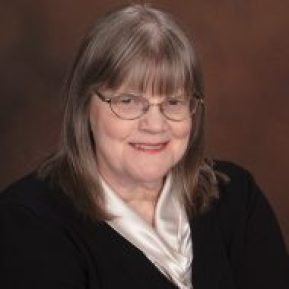NOTE: This was originally posted in 2019. I’m posting it again because I was recently reminded how difficult moving forward can be. When an unexpected trauma occurs, it is easy to revert to old habits and thoughts. We want to grab hold of what we know or the first thing we see. The problem is we what held us up in the past doesn’t work anymore. Most recently, I’ve struggled to understand several disruptions in my life that seemingly blocked what I thought God wanted me to do. Although I was briefly tempted to reach for old, unhealthy coping mechanisms, I resisted the temptation because I recalled the song I write about in this blog. When you are tempted to hold on to what brought relief in the past, remember you are most likely, “painting pictures of Egypt and leaving out what it lacked.”
As I reflect on my healing from childhood abuse and my recovery from sexual and food addiction, I am reminded of a song by Sara Groves entitled “Painting pictures of Egypt.” I always liked that song because it illustrates how hard it is to move forward from a place that is comfortable. Even when the comfort is painful or unhealthy, moving forward is very hard. Leaving the security of familiar coping mechanisms is terrifying. Especially when nothing seems to ease the fear and pain like what I knew. When the “new life” became difficult or not what I expected, I wanted to return to the comfortable. I wanted what was comfortable even though it was dangerous and painful. “I was dying for some freedom/But … I hesitated to go. /I was caught to between the Promise/And the thing I [knew].”[1] I was often like the Israelites who constantly complained and rebelled even though God had delivered them from slavery.
They said to Moses, “Is it because there are no graves in Egypt that you have taken us away to die in the wilderness? What have you done to us in bringing us out of Egypt?” Exodus 14:11
“the place they used to fit me/[Could not] hold the things I’d learned.”
I remember times memories flooded me and I forgot the strength of the woman I had become. I became the frightened child curled up in the corner wishing I could magically teleport to somewhere, anywhere that was not my parent’s home. I convinced myself that I could hold on to the “what if’s,” that “it wasn’t so bad.” and the “let me tell you about…”I told myself so many times, “I’ll get it right this time, but let me just stay here for a little while.” “I’m not ready to leave this yet.” Sometimes I took baby steps out of Egypt. Sometimes I took giant leaps. Each time, I would forget the downside of dissociation, promiscuity or overeating because “the future [felt] so hard/And I [wanted] to go back.”[2] But as Groves writes, “the place they used to fit me/[Could not] hold the things I’d learned.”[3]
I felt the old patterns, “calling out to me/Like a long-lost friend.
I wasn’t comfortable in my new life, but returning to my old habits wasn’t an option because “Those roads were closed off to me/While my back was turned.”[4] I longed to escape reality even though dissociation was frightening to my adult self, mentally disappearing brought momentary relief to my ravaged soul. I tried to revisit the past because as Groves writes, “The past is so tangible. /I know it by heart. /Familiar things are never easy/To discard.”[5] Letting go of addictive behaviors and temporary mental escapes that kept me sane for so long was excruciatingly painful. I held on for my life. I knew there was something better because I experienced it in moments of sanity and clarity. Groves words rang true to me so many times during those early years of recovery and healing, “I don’t want to leave here/ I don’t want to stay/ It feels like pinching to me/Either way.”[6] I felt the old patterns, “calling out to me/Like a long-lost friend.”[7]
Wanting to return to old patterns wasn’t about “losing faith…or about trust/It [was] all about comfort.” My addictive behaviors were comfortable. They weren’t perfect, but they were comfortable. I depended on them for my life, or at least I thought I could not live without them. Then I learned I could live without them and I learned new healthy ways of managing anxiety and stress. Memories did not send me into a spiral of irrational thought.
no longer caught between the Promise and the things I know.
After years of work I realize, “I am no longer caught between the Promise and the things I know.”[8] Groves ends the song with “If it comes to quick/ I may not appreciate it. /Is that the reason behind all this time and sand?”[9] I firmly believe there is no quick fix for healing or recovery. While I believe in miracles, I also believe sometimes the journey is the most important part of healing. A quick fix might rob you of the ability to appreciate the change in your soul. However, change requires taking the first step out of Egypt. Waiting too long might cement the habit or thought pattern and makes it harder to leave it behind when you walk toward your Promise.
Leave Egypt once and for all
To move forward, we must take a close look at what we are holding onto. What is keeping us stuck? When we keep one foot in Egypt as we look toward our “promised land,” we hinder our ability to move forward. Through Christ, you have freedom. In Christ, you can move forward. We can leave Egypt and not be trapped by, “Painting pictures…leaving out what it lacked.”
Related Posts
Sonnet III. How Can I Make It Right?
[1] Sara Groves, Painting Pictures of Egypt lyrics © Music Services, Inc
[2] Ibid.
[3] Ibid.
[4] Ibid.
[5] Ibid.
[6] Ibid.
[7] Ibid.
[8] Ibid.
[9] Ibid.



















